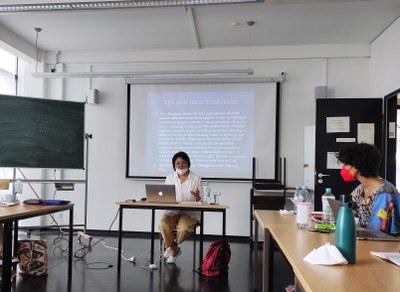Perspectives from Kyrgyzstan, Indonesia and Egypt
These lectures were held in the framework of “Berliner Transregionale Gespräche / Berlin Transregional Talks” at the Institute of Asian and African Studies (IAAW), Humboldt Universität zu Berlin. The lectures were hosted by the research team of the DFG funded project “Women´s Pathways to Professionalization in Muslim Asia” (Prof. Dr. Claudia Derichs, Prof. Dr. Manja Stephan-Emmrich and Dr. Faiza Muhammad Din).
Public lecture of 28th June 2022 by Emi Goto. Rethinking religious boundaries through Nasr Hamid Abu Zayd´s writings on Japan
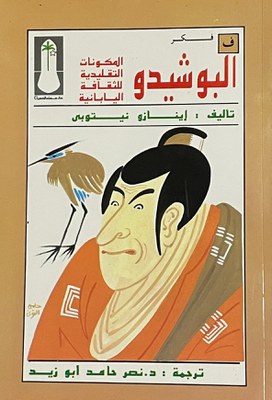
In this lecture, Dr. Emi Goto has introduced an Egyptian scholar of Qur'anic studies, Nasr Hamid Abu Zayd (1943–2010), and his writings on Japan. Between 1985 and 1989, he lived in Japan for four years as a visiting professor of Arabic. Abu Zayd began to rethink Islam and Muslimness as he experienced life in Japan and translated a book by Inazo Nitobe, titled Bushido (the path of samurai) into Arabic. Through an examination of Abu Zayd’s thoughts, Dr. Goto reflected on religious boundaries, including the boundaries between Muslims and others.
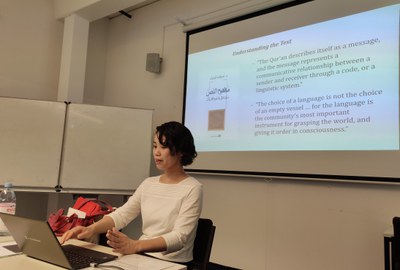
Dr. Goto´s abstract on "Theology of "Actresses": Feminism, the Hijab and Islam in Egypt
This paper discusses the dynamics of epistemic frameworks on Islam in contemporary societies by taking the example of Egypt, where “actresses”, or female actors, have played a role in its development. It was at the end of the 19th century in Egypt that the population entered the creation of knowledge about Islam, which had long been the role of the ulama, who were educated in religion in traditional ways. In the latter half of the 20th century, with the spread of mass education and the development of mass media, more people, including preachers and writers with modern higher education, lawyers and judges, and female and male celebrities, such as TV presenters, singers and actors, began to speak about Islam in their own ways.
When discussing the role of female actors, studies have focused on how these actors shared and disseminated certain discourses, especially those related to the need for the hijab, covering attire for Muslim women (van Nieuwkerk 2013; Goto 2014). This study will broaden the scope of the research and illustrate the emergence and rivalry of diverse religious discourses. Since the beginning of the 20th century, there have been female actors in Egypt who did not wear hijabs and who questioned the social oppression of women, taking advantage of their widespread popularity and using the latest forms of media. They expressed their understanding of Islamic thought and their views on the social practices associated with Islam. This paper will trace how such knowledge developed and was spread via these actors’ involvement to highlight the plurality and multiple layers of Islamic understanding.
Reference:
Karin van Nieuwkerk (2013) Performing Piety: Singers and Actors in Egypt's Islamic Revival. Austin: University of Texas Press.
Emi Goto (2014). Veils for God: Women and Islam in Contemporary Egypt (In Japanese). Tokyo: Chuokoronshinsha
30th June 2022 lecture by Dr. Mukaram Toktogulova. The localization of Tablighi Jama´at network in Kyrgyzstan: structures, concepts and practices
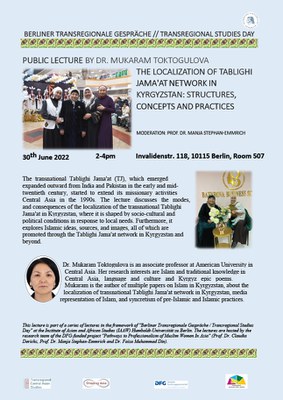
The transnational Tablighi Jama'at (TJ), which emerged expanded outward from India and Pakistan in the early and midtwentieth century, started to extend its missionary activities in Central Asia in the 1990s. The lecture discussed the modes,
And consequences of the localization of the transnational Tablighi Jama'at in Kyrgyzstan, where it is shaped by socio-cultural and political conditions in response to local needs. Furthermore, it explores Islamic ideas, sources, and images, all of which are promoted through the Tablighi Jama'at network in Kyrgyzstan and
beyond. The Tablighi facilitated Islamic education and consciousness for many people in Kyrgyzstan, as the country doesn’t have an extended tradition of transmitting Islamic knowledge compared to its neighboring countries. The Tablighi enabled an effective transmission of knowledge and are a good example of Muslim globalization. They bring something new, as their influence is very different from the Western or Russian influence. They also create a new image of pious, educated and active women in society.
Toktogulova Mukaram is an Associate professor at American University in Central Asia. Her research interests are Islam and traditional knowledge in Central Asia, Language and Culture, Kyrgyz Epic poems, and Kyrgyz Literature. Mukaram is the author of papers on Islam in Kyrgyzstan, where she discussed the Localization of Transnational Tablighi Jama’at Network in Kyrgyzstan, Media representation of Islam, and Syncretism of pre-Islamic and Islamic practices. She is the author of the book about Kyrgyz writer K.Jusubaliev and the editor of the textbook Research Methods in Social Sciences (in Kyrgyz). Mukaram teaches courses on Islam, Ethnography, Folklore and Language, Culture and Power in the anthropology department. She received her degree in 2001 from the National Academy of Sciences in Bishkek, Kyrgyzstan.
Dr. Toktogulova´s abstract on "the religious turn in personal development training in Bishkek: The case of seminars for "covered women"
The presentation will focus on personal development trainings led by female Muslim practitioners in Bishkek, Kyrgyzstan. The case study of the seminars for “joolukchan ayaldar (covered women) has a goal to reflect on how female leaders of the training centers translate their religious knowledge into professional activism. The paper will focus on the influence of teacher’s religious beliefs on both: the content of the courses and the professional image of the teacher. The term “joolukcan ayaldar” (covered women), which is used to refer to teachers and students of those educational centers, will be analyzed as the key identity concept that symbolizes moral values and principles of those female trainers. “Joolukchan” means a faithful woman, who is actively engaged in personal development education to fight gender violence, inequality, poverty, that Kyrgyzstani Muslim women face in everyday life. These training centers aim to shape a new image of female Muslim social activists, educators, who celebrate equality and success. The content of the courses will be discussed to address what Islamic knowledge and principles trainers use to improve “joolukchan ayaldar's " self-confidence, leadership, and problem-solving skills, communication skills, habits for success in personality development training. In addition, the presenter will discuss how those training centers use new technologies and organize seminars in different regions within and outside of the county to extend the network of “joolukchan ayaldar”.
Professionalization of women writers from the pesantren tradition in Indonesia by Dr. Nor Isma
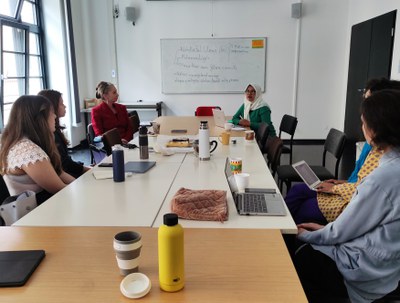
Pesantren is the oldest education system in Indonesia. They are boarding schools that offer a religiously oriented education. It has been established since 1742. The boarding schools are based on 5 main elements: Pondok (dorm), the Mosque, Santri (students), Kiai (readers), Kitab Kuning (the Book). For this paper, Nor interviewed 6 women writers from a new generation of writers (from 2000s on) who grew up with a Pesantren education. Due to this background, the women have the feeling they have to explain something about their authenticity. Through writing, these women target young girls and engage in da’wa. How do these women writers use their religious knowledge in order to professionalize their experience? How do they express their ideas and how does the new generation of women writers use new technology? For this, Nor focuses on two online book platforms: Kwikku and Komunitas. The aim of these websites is to establish a platform for Indonesian writers in their local language. One platform was founded by Asma Nadya, together with her husband. A few of the women writers engaged in these platforms are Khilma Anis, Mambaul Athiyah and Azri Zakkiyah.
Dr. Nor Ismah is a researcher and capacity-building consultant who is doing her PhD at Leiden University Institute for Area Studies (LIAS) the Netherlands sponsored by the Indonesia Endowment Fund for Education (LPDP) of the Ministry of Finance of Republic Indonesia (2016 -2020). She earned her master's degree from the University of Hawaii at Manoa USA in 2012. Ms. Ismah is experienced in designing modules and facilitating workshops, both online and offline, in the field of writing and research methods, gender and feminism, and peace education. She has been working for international and national NGOs such as Rahima, MSI-SIAP 1, AEPI-SSQ-Cardno, Search for Common Ground, Kemitraan, Mercy Corps, Koalisi Perempuan Indonesia, Perkumpulan Prakarsa, Abt Associates-KOMPAK, and Rahima. In her work, she applies qualitative and ethnographic methods and narrative writing in the field of social sciences and humanities with a specialization in gender, education, and media. She is familiar with approaches such as PRA (Participatory Rural Appraisal), Gender Mainstreaming (community and organizational level), Feminist Perspective, Intersectionality, Most Significant Changes, and Content Analysis.
Summary of Dr Ismah´s guest lecture
Most studies of fatwas and how they are produced in Indonesia focus on established fatwa institutions dominated by men. These studies are characterized by various approaches. They discuss, for example, methodological aspects, the meaning of maslaha (social good), religious authority, or the relationship between fatwas and the social context in which they emerge. In many cases, they are based on an Islamic studies framework, in which fatwas are primarily seen as documents resulting from either ijtihad or taqlid derived collective and institutional interpretations. Such studies tend to ignore the everyday practice of issuing fatwas at the grassroots, spaces that are often considered as being of marginal importance in fatwa-making, such as Islamic study groups or private spaces in which religious authorities and mustafti—the person requesting a fatwa—meet. In these cases, the religious authorities in question are often women.
Taking a different approach in comparison to most existing fatwa studies by employing a combination of anthropological and gender lens, I observed women issuing fatwas in Indonesia in different places and spheres of interaction between the fatwa-giver and fatwa asker. So instead of focusing on one or other established fatwa institution, in which women are usually underrepresented, I have examined the experience of women in Indonesia’s largest traditional mass Muslim organization, Nahdlatul Ulama (NU). I have focused on different sites of interaction: the organization itself, formal fatwa councils, the village/grassroots level, women’s activism, and women’s magazines. These different spaces of interaction demonstrate the dynamic changes between women’s experiences, women’s expression of religious authority, and everyday practices of issuing fatwas by women due to different kinds of capital and resources provided in those spaces.
Studying women issuing fatwas from an anthropological and gender perspective reveals fatwas with a variety of terms, meanings, and practices. Fatwa can be called ngendikan (Javanese: statement), dhebu (Madurese: statement), opinions, answers, and sikap dan pandangan keagamaan (religious attitudes and views). In this context, the essential part of a fatwa is how the Muslim believer finds it applicable and able to solve his or her religious problems. The fatwa can thus become a medium for ethical improvement and doctrinal change with interpretations that are more sensitive to gender justice. The practice of making fatwas by women shows fatwas as a disruptive practiceWhen these widespread fatwa-making practices are made visible, revealing women’s engagement, they can shift the entire discourse around the fatwa, derailing the idea of male domination. In addition, fatwas as a medium to demonstrate juristic authority not only occur in the context of religious institutions, but can also become part of the Islamic feminist movement. That has had two significant implications in the Third World women's movement, as explained by Mohanty (2003). First, it is breaking down the assumption of “Western eyes” on women from the Third World, and secondly it is proposing a grounded and distinctive framework that is rooted in the local context, which is Indonesian Islamic feminism.

